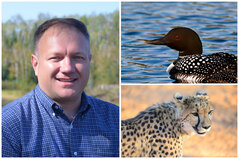jOIN US AT 6:00 PM, SUNDAY, AUGUST 9TH FOR OUR
2020 'ONLINE' ANNUAL MEMBERS MEETING
To join the annual meeting, use the following login information:
Join Zoom Meeting
Meeting URL: https://audubon.zoom.us/j/91763033693?pwd=TzA5bGFuSG1OMWxHNHk5WEZNREFwUT09
Meeting ID: 917 6303 3693
Password: 022752
Join by Telephone
For higher quality, dial a number based on your current location.
Dial: US: +1 646 876 9923, or +1 301 715 8592, or +1 312 626 6799, or +1 646 518 9805, or +1 346 248 7799,
or +1 669 900 6833, or +1 253 215 8782
To vote for MHAS Board members online, click here (MHAS members only). If you prefer to mail in a ballot by August 8th, you can download a hard copy HERE .
Join Zoom Meeting
Meeting URL: https://audubon.zoom.us/j/91763033693?pwd=TzA5bGFuSG1OMWxHNHk5WEZNREFwUT09
Meeting ID: 917 6303 3693
Password: 022752
Join by Telephone
For higher quality, dial a number based on your current location.
Dial: US: +1 646 876 9923, or +1 301 715 8592, or +1 312 626 6799, or +1 646 518 9805, or +1 346 248 7799,
or +1 669 900 6833, or +1 253 215 8782
To vote for MHAS Board members online, click here (MHAS members only). If you prefer to mail in a ballot by August 8th, you can download a hard copy HERE .
2020 Featured presentation

Loons and Cheetah’s - What do these two animals have in common?
Both have spots. Both can reach speeds of 70 miles per hour (one on land, one in the air). Both are at risk from climate change. Rob Shultz may be the one who knows!
Schultz is the new Vice President and Executive Director for Audubon Minnesota and the Upper Mississippi Flyway. Audubon recently released a comprehensive, first-of-its kind study that predicts how climate change could affect the ranges of 588 North American birds; “Survival by Degrees: 389 Bird Species on the Brink”. Over the past half-century, North America has lost more than a quarter of its entire bird population, or around 3 billion birds. Audubon predicts that 314 bird species will lose more than 50 percent of their current climatic range by 2080 – including loons.
Rob has also participated in a community-focused cheetah conservation project organized by the Cheetah Conservation Fund (CCF). Located near the city of Ojiwarongo in Namibia, Africa, CCF is a full-scale conservation NGO working to save the cheetah and its ecosystem.
Rob will provide an overview on threats to Minnesota birds from climate change based on Audubon’s new report, along with observations on how CCF’s approach to predator conservation in Africa has helped him look at conservation issues in the United States from a different perspective.
Both have spots. Both can reach speeds of 70 miles per hour (one on land, one in the air). Both are at risk from climate change. Rob Shultz may be the one who knows!
Schultz is the new Vice President and Executive Director for Audubon Minnesota and the Upper Mississippi Flyway. Audubon recently released a comprehensive, first-of-its kind study that predicts how climate change could affect the ranges of 588 North American birds; “Survival by Degrees: 389 Bird Species on the Brink”. Over the past half-century, North America has lost more than a quarter of its entire bird population, or around 3 billion birds. Audubon predicts that 314 bird species will lose more than 50 percent of their current climatic range by 2080 – including loons.
Rob has also participated in a community-focused cheetah conservation project organized by the Cheetah Conservation Fund (CCF). Located near the city of Ojiwarongo in Namibia, Africa, CCF is a full-scale conservation NGO working to save the cheetah and its ecosystem.
Rob will provide an overview on threats to Minnesota birds from climate change based on Audubon’s new report, along with observations on how CCF’s approach to predator conservation in Africa has helped him look at conservation issues in the United States from a different perspective.
Dear members,
I don't need to tell you what a challenging year this has been for everyone. Because of the pandemic we had to cancel our flagship "Young Naturalist Program" for the first time in 40 years! Our Annual Members Meeting, which we traditionally have held at our Neilson Spearhead Center and Preserve, will see some changes as well.
To insure the safety of our members and their families, the MHAS Board has decided to host this meeting 'online' rather than 'in-person'. We know this won't be the same, but given the situation we feel it is the best way to get together, hear about what MHAS is doing, and elect our Board leaders for the upcoming year. I hope many of you can join us as we look forward to a better year ahead.
Sincerely,
Peter Buesseler, MHAS President
